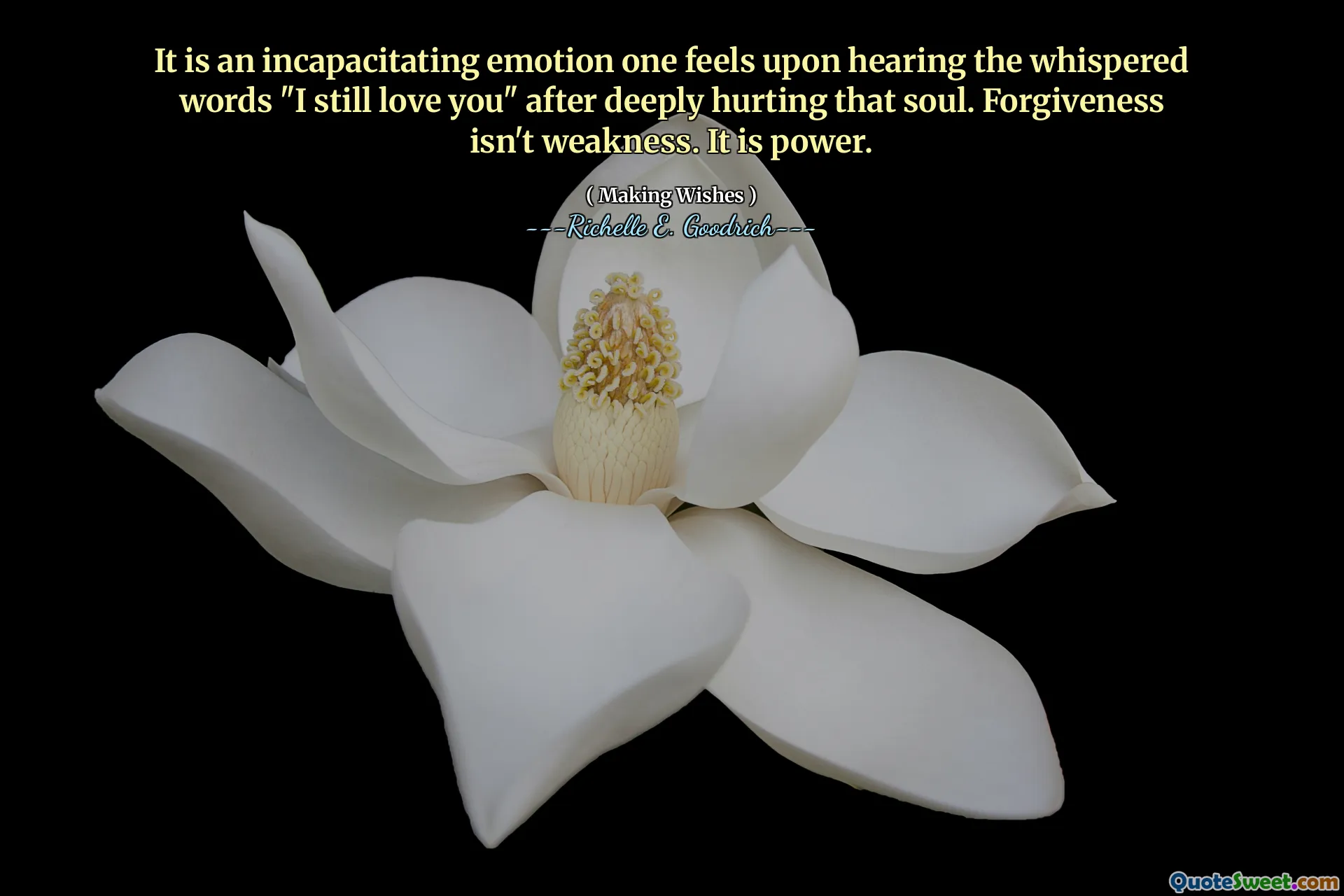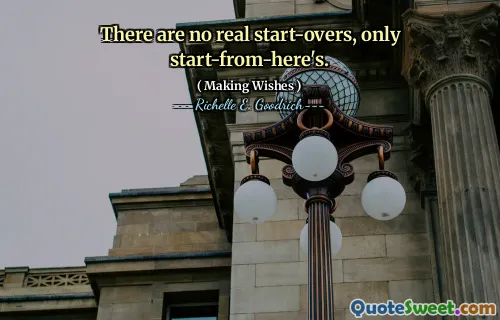
It is an incapacitating emotion one feels upon hearing the whispered words "I still love you" after deeply hurting that soul. Forgiveness isn't weakness. It is power.
This quote beautifully encapsulates the paradoxical nature of forgiveness — how it is often misconstrued as a weakness when, in fact, it embodies profound strength and resilience. The phrase "It is an incapacitating emotion" highlights the overwhelming and complex feelings that arise when one hears "I still love you" after causing deep pain. It points to vulnerability, remorse, and maybe even a moment of revelation when one realizes the true courage and grace that forgiveness demands.
Forgiveness allows both the injured and the injurer to find healing. It requires the strength to let go of bitterness, pain, and anger and offers the chance to renew human connection. This quote challenges the societal misconception that forgiving someone is passive or submissive, asserting instead that forgiveness is an empowering act — a conscious decision to acknowledge hurt but to rise above it.
In the broader context of human relationships, this reflection underscores how love and forgiveness are intertwined: love is resilient even after betrayal or harm, and forgiveness nurtures that continuity. The quote invites us to appreciate the delicate balance of emotions involved in reconciling with those we have wronged or who have wronged us. Ultimately, it is a testament to the transformative power kindness and understanding hold even in the face of pain. It encourages embracing the strength born from compassion, empathy, and vulnerability.
From "Making Wishes" by Richelle E. Goodrich, this quotation serves as a gentle reminder and a source of wisdom for anyone grappling with forgiveness and love.








